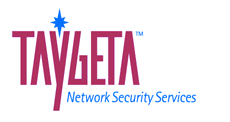 |
We cover your cyber assets.
Founded in 1995. |
| About |Services |Alerts |News |Tips |Links |Contact |Home | |
|
|
|
 |
We cover your cyber assets.
Founded in 1995. |
| About |Services |Alerts |News |Tips |Links |Contact |Home | |
|
|
|
|
The Internet is a dangerous place these days, with identity theft scams and zombie networks among other dangers. The average lifetime of an unprotected computer on the Internet is about 20 minutes before it gets discovered, compromised and exploited. The response to these dangers is the network firewall. There are two types of these devices:
This note is about hardware firewalls, specifically the ones built into the very popular all-in-one DSL router/firewall devices. Some models include a built-in wireless access point and a 4 to 6 port network hub/switch. The firewall function in these routers are only a rudimentary firewall, it is not a suitable firewall for protecting a corporate network or a sensitive home network. However these devices are popular because they cost well under $100, whereas more industrial strength firewalls cost $700 and more. Even though these firewalls are very basic and a skilled attacker has several approaches they can use to defeat their defenses nevertheless there are things one can do in order to improve what security they can provide for you. Here are some things that you can do in order to enhance their security:
A Note about the DMZ/Game Port. These routers frequently have a special LAN port which is known variously as a DMZ or game port. When this port is configured in a special mode, it is treated as directly connected to the Internet with the firewall functions off, even if the firewall is enabled. The motivation for this configuration option is that supposedly Internet games cannot be placed behind a firewall. This is not actually true, but most Internet games have complicated port connection requirements which are too complicated for these simple firewalls to handle. If you are not doing Internet gaming, make sure that this port is configured as a normal port. There are no absolutes when it comes to Internet security, but by taking the steps outlined above you will have 'raised the bar' to make it harder for an intruder to gain access to your home network. |